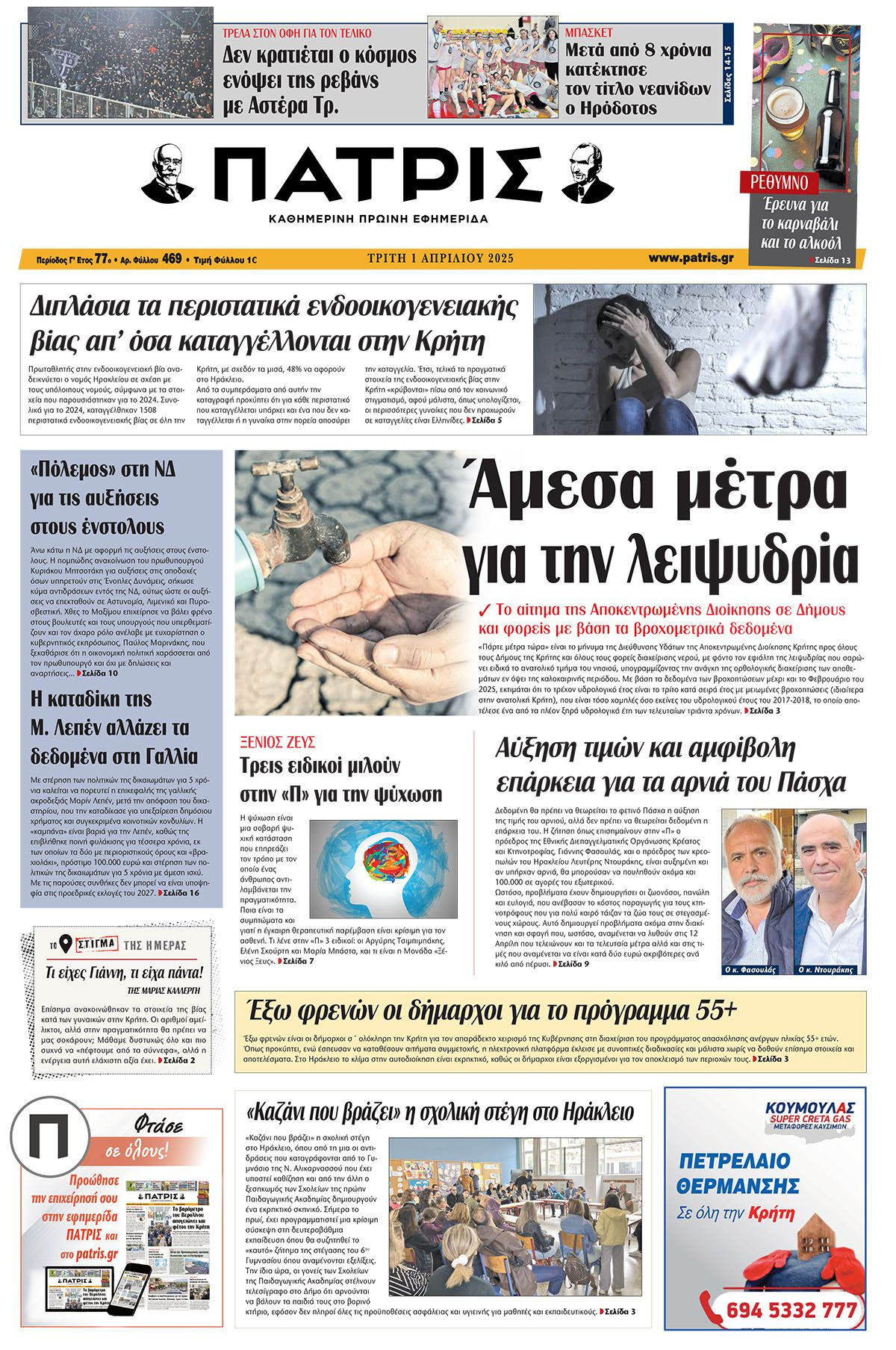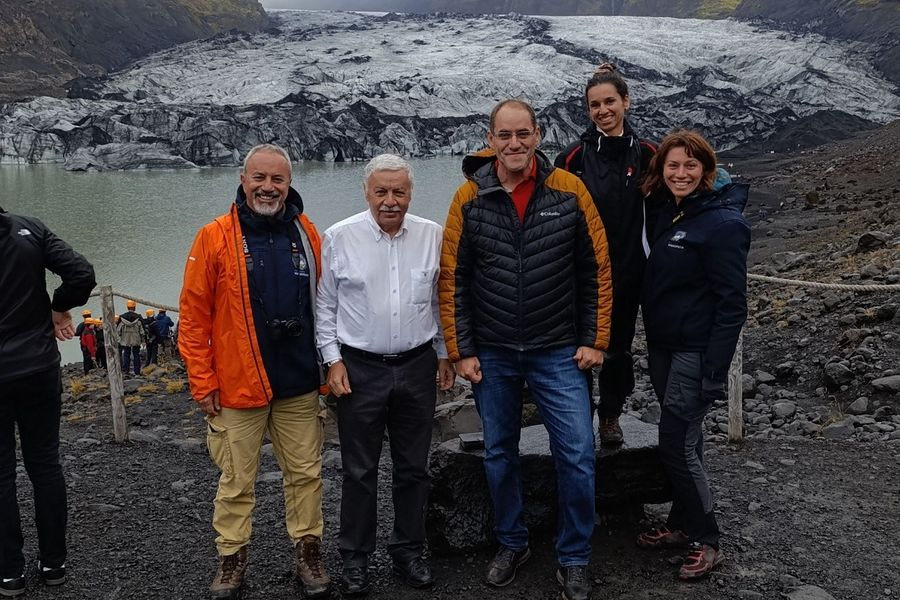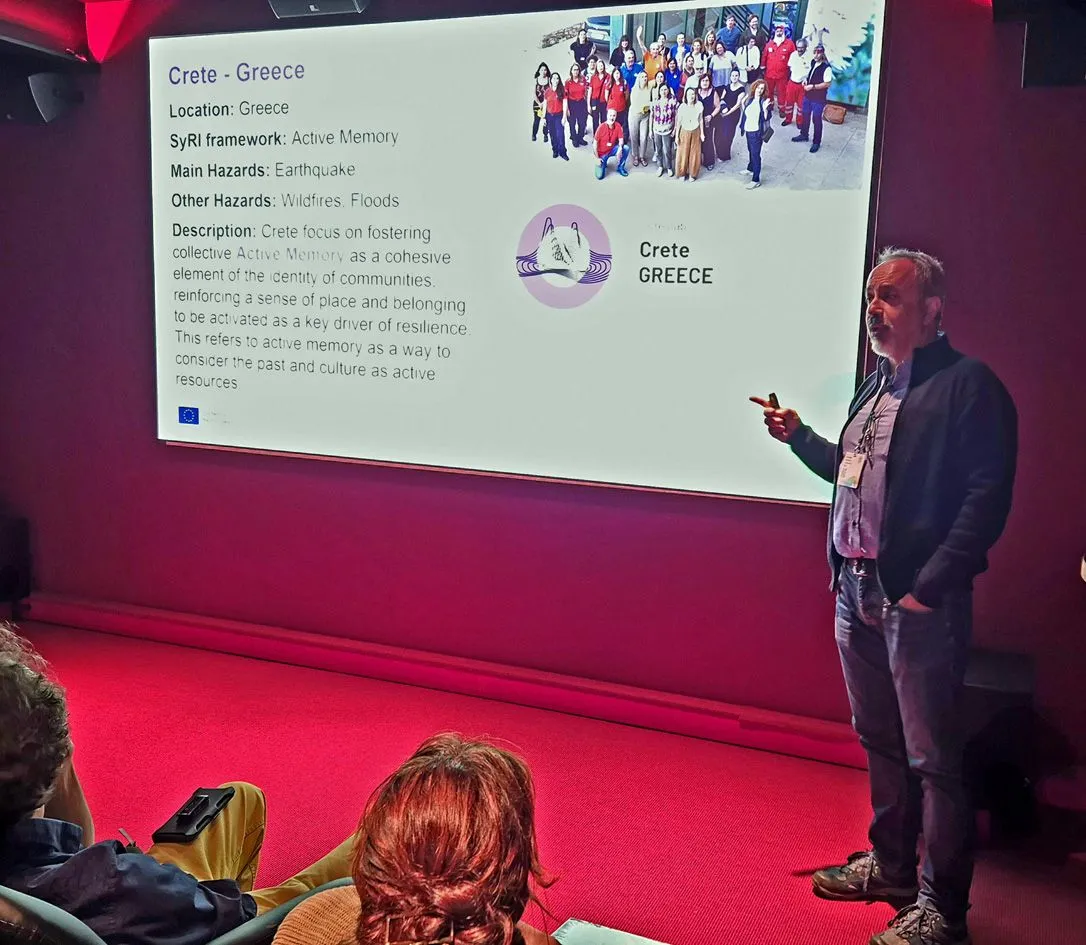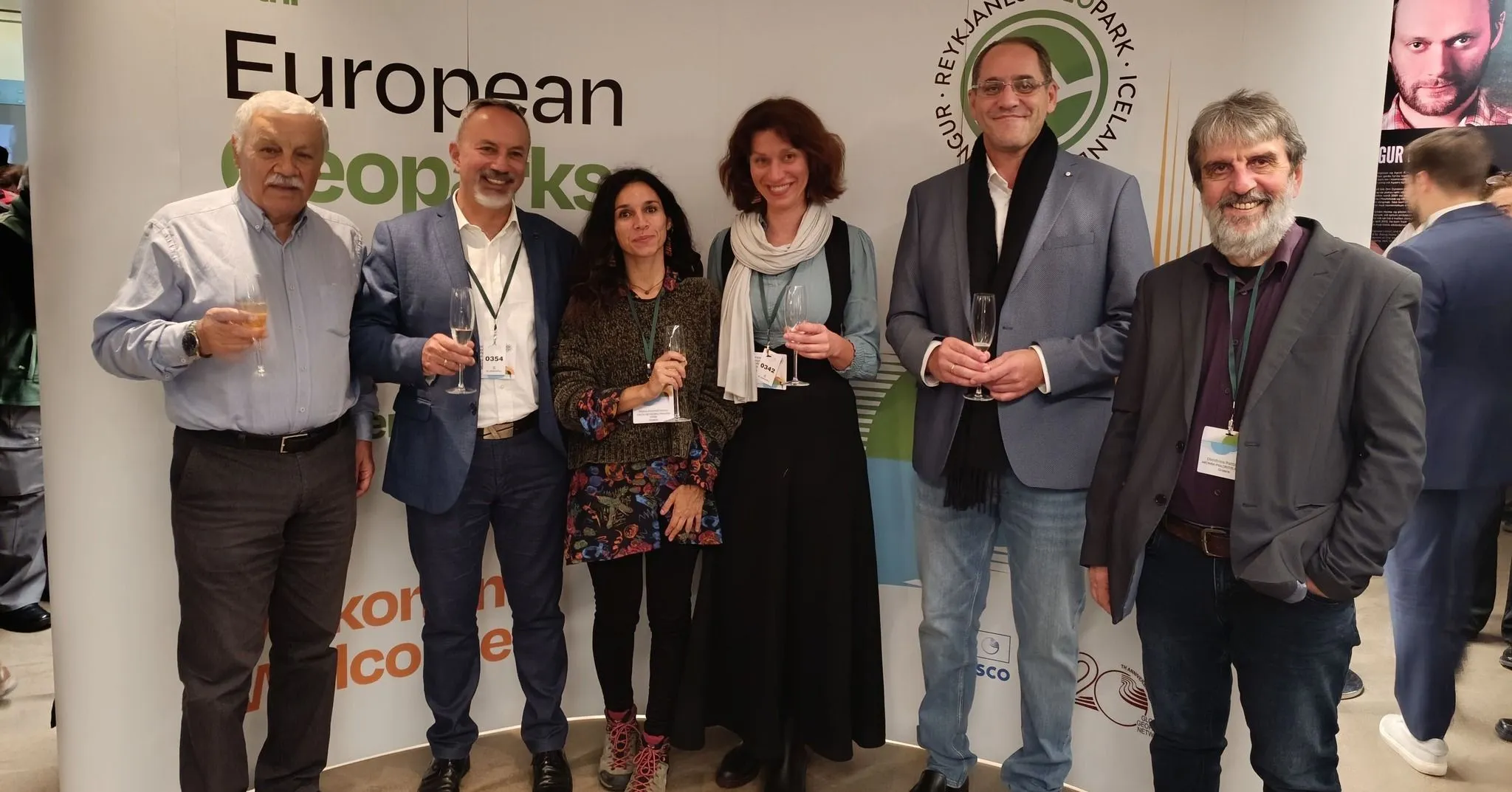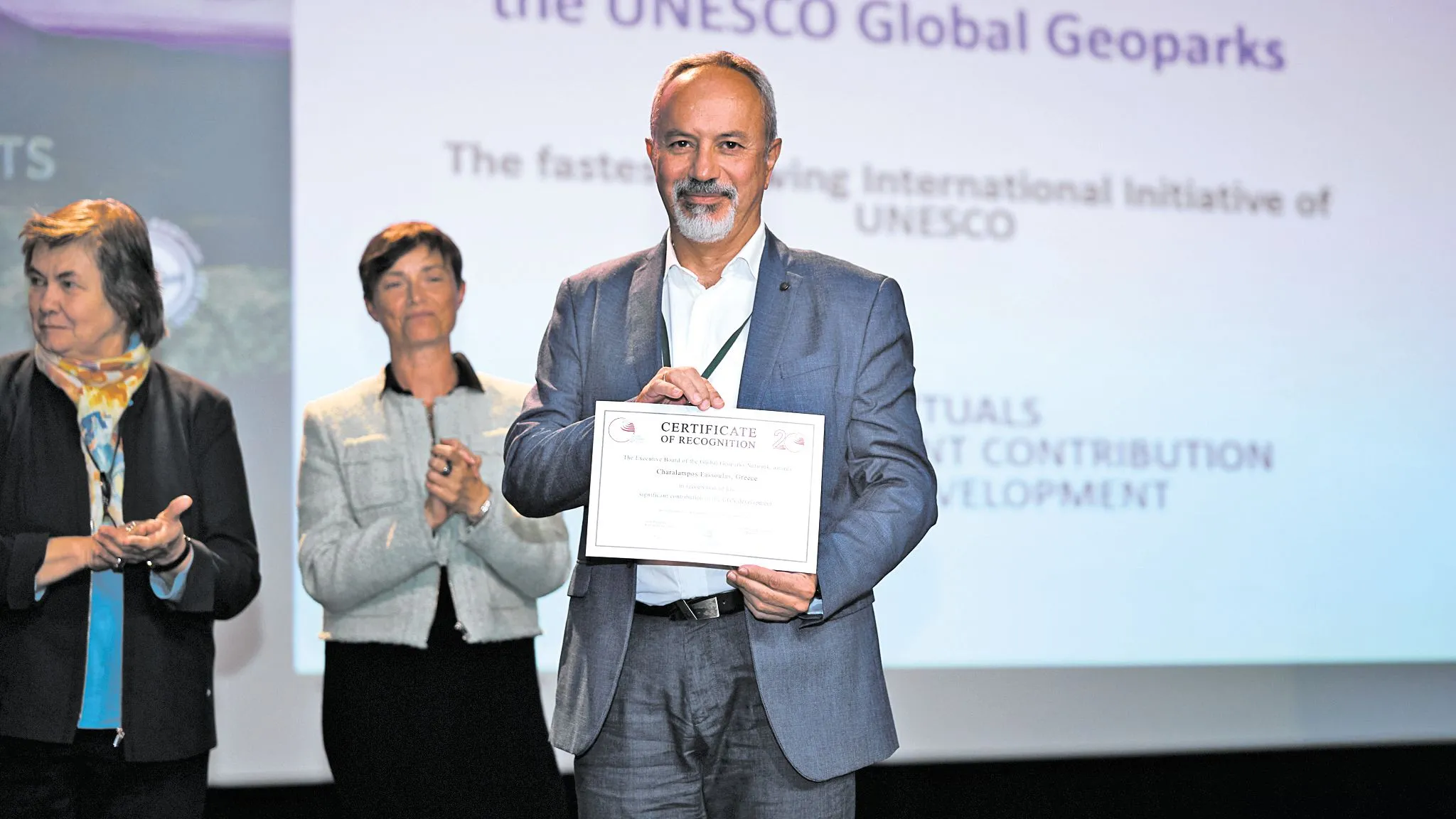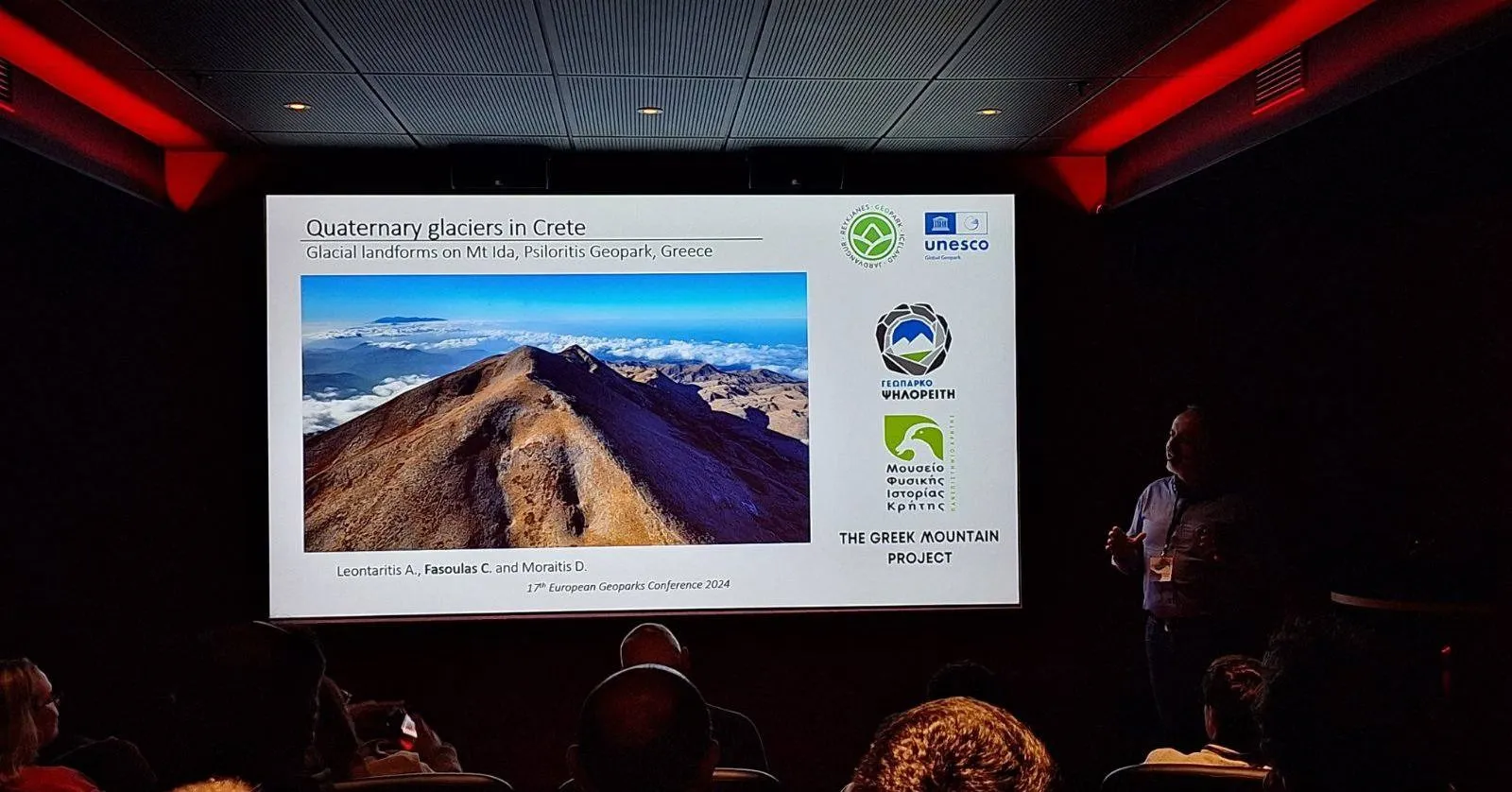We knew Crete had snow, but we didn’t know the island once had glaciers. This important announcement, expanding the scope of scientific knowledge, was made at the 17th UNESCO European Geoparks Conference in Reykjanes, Iceland. Scientists brought this new discovery to light, which was met with excitement and surprise.
Dr. Charalambos Fassoulas, Professor of Geology and head of the Psiloritis Geopark, explained this surprise in an interview with ¨P¨ newspaper. Along with two other scientists, he conducted the research, stating:
“Based on existing data, the southernmost point where glaciers had been identified was Mount Taygetos in the Peloponnese. Our announcement changes that, as the strong indications we are now investigating suggest that Crete—specifically Psiloritis—is the southernmost location where glaciers once existed.”
The research team included Charalambos Fassoulas, Daniel Moraitis, a Geology Professor in the United Arab Emirates, and Aris Leontaritis, a speleologist and PhD candidate at Thessaloniki University, specializing in glaciers. The project was sparked by a report Aris Leontaritis found from French speleologists in the 1990s, which mentioned the possibility of glaciers further south. This report, initially in French, was translated and published online, setting the research in motion. They took rock samples from around Mygero and the White Mountains, though no similar evidence was found in the latter.
So far, evidence points to glaciers only on Psiloritis. As Fassoulas noted, “We’ve sent samples to foreign labs and are awaiting results. It will take some time, as the processes are lengthy and costly. However, the current data shows that glaciers existed in Crete during three distinct periods, ranging from 20,000 to 400,000 years ago. The climate was much colder than today. Now, we have snow at high altitudes, but it doesn’t last year-round, unlike the glacial conditions of the past.”
This announcement was enthusiastically received by conference participants, adding yet another significant geosite to the Psiloritis Geopark. The international conference attracted scientists from across the globe, especially from regions with glacier expertise like Iceland, Switzerland, and the Alpine areas.
Gaining Knowledge and Sharing Insights
Reflecting on the conference and what participants learned, Fassoulas shared:
“As the Psiloritis Geopark, we gave three presentations on the latest developments in our park, while also getting the chance to learn from other European Geoparks. This helped us reflect and gather inspiration for our next steps! Along with other Hellenic Geoparks, we took part in the ‘GeoFair’—an open event showcasing Geoparks from across Europe.”
Fassoulas and his team also joined two field visits, which they shared on social media, highlighting the breathtaking volcanic and glacial landscapes of Iceland’s Reykjanes UNESCO Global Geopark and the nearby Katla UNESCO Geopark. These regions, though unfamiliar to many, were incredibly interesting from both a geological and aesthetic perspective, as well as in terms of how their colleagues manage and promote them.
Renewal for Four More Years
Representing the Psiloritis Geopark in Iceland were Charalambos Fassoulas, scientists Maria Kolendrianou and Chara Papaïliou, as well as Sokratis Kefalogiannis, mayor of Anogeia, and Dimitris Pattakos from the ACOMM-Psiloritis organization. Additionally, the region was represented by Nikos Xylouris, Vice-Governor of Crete.
During the conference, the Psiloritis Geopark received a four-year renewal after a thorough evaluation. Fassoulas remarked:
“We were thrilled to receive the certification for our successful evaluation last summer and the renewal of our status as a UNESCO Global Geopark for another four years!”
“This certification is the result not only of our efforts but also of the work and collaboration among all the partners and supporters of our Geopark over the years. That’s why it was a pleasure to have representatives from the local authorities, such as Sokratis Kefalogiannis, and from the regional authorities, like Nikos Xylouris, as well as from ACOMM-Psiloritis Development Agency, with Dimitris Pattakos, accompanying us.”

